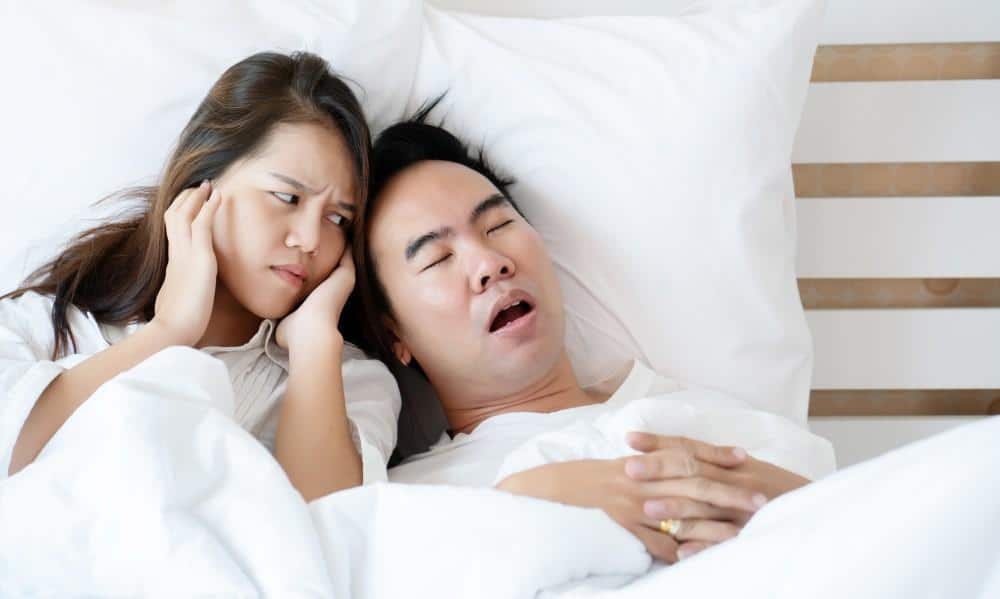You probably know that snoring is an often-cited symptom of sleep apnea. But did you know there are other less obvious symptoms of this widespread disorder? About 18 million Americans struggle with sleep apnea, and if not treated, this troublesome condition can cause serious and potentially life-threatening complications.
At Prima Medicine, our highly skilled providers are committed to helping patients in and around Fairfax and South Riding, Virginia, sleep easier. Our medical doctors and nurse practitioners help patients get the sleep they need by getting to the source of their sleep apnea.
We’ve curated this informative guide to help you understand some of the hidden symptoms of sleep apnea that you shouldn’t ignore.
What is sleep apnea?
Sleep apnea is a sleep disorder where you stop breathing for short periods while you sleep. You could be diagnosed with obstructive sleep apnea, central sleep apnea, or the combined type.
Obstructive sleep apnea
The most common type of sleep apnea, obstructive sleep apnea occurs because the muscles in your throat relax when you sleep and cause your airway to close. This makes you stop breathing for brief periods of time.
Central sleep apnea
Central sleep apnea results due to a disconnect between your brain’s breathing signals and your throat muscles. As a result of this misfiring, your breathing stops for brief periods as you sleep.
Combined-type sleep apnea
Some patients have both central sleep apnea and obstructive sleep apnea. If you have symptoms of both types, you’re diagnosed with combined-type sleep apnea.
What are some signs I might have sleep apnea?
Most people are aware that snoring can be a symptom of sleep apnea. That’s because when air can’t move easily through your nose and throat, such as when you have obstructive sleep apnea, the surrounding tissues vibrate and create a sound we call snoring.
But there are other symptoms of sleep apnea that people frequently overlook. The result? A higher risk of developing major health problems, including high blood pressure, cardiovascular disease, memory troubles, weight gain, impotence, and headaches.
Here’s a closer look at sleep apnea symptoms you shouldn’t ignore:
Daytime drowsiness and fatigue
If you have sleep apnea, your chances are higher of not getting enough high-quality sleep. This can make it hard for your body to get the rest it needs to repair and regenerate cells, including those that keep your brain functioning well. This can make it hard to concentrate, cause memory troubles, and make you moody. If you’re experiencing daytime drowsiness or fatigue on a regular basis, sleep apnea could be the cause.
Hypertension, metabolic disorder, or diabetes
Sleep apnea often causes a drop in oxygen levels, which can make your blood pressure increase and strain your cardiovascular system, which can increase your risk of heart attack, stroke, and atrial fibrillation. If you have chronic high blood pressure (hypertension), talk to your provider about sleep apnea.
Type 2 diabetes and metabolic disorder are also highly associated with sleep apnea. If you’ve been told you have or are at risk for these conditions, be sure to discuss the possibility of sleep apnea at your next appointment.
Erectile dysfunction
Research indicates that men with erectile dysfunction (ED) are twice as likely to have sleep apnea as compared to those without. What’s more? The more severe the patient’s ED, the more likely it is that the patient also has sleep apnea. If you or your partner struggle with ED, be sure to discuss sleep apnea with the Prima Medicine team.
Weight gain
If you’ve been struggling with weight gain, sleep apnea could be a contributing factor. If you’re always tired, it could be difficult to exercise and maintain a healthy weight. And, as you continue to gain weight, the added pounds could make your sleep apnea worse.
Is there help for sleep apnea?
Minor cases can often be helped by making simple lifestyle changes, such as losing weight, quitting smoking, avoiding alcohol, and not sleeping on your back. If you need help maintaining regular breathing, additional options may include the following:
- CPAP (continuous positive airway pressure) machines
- Dental devices (snore guards)
- Surgery
Your provider at Prima Medicine will evaluate your symptoms, go over your medical history, conduct a physical exam, and then create a treatment plan to meet your needs.
If you have any of the symptoms of sleep apnea, we can help. To learn more, book an appointment online or over the phone with Prima Medicine today.





